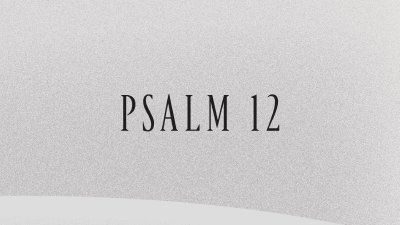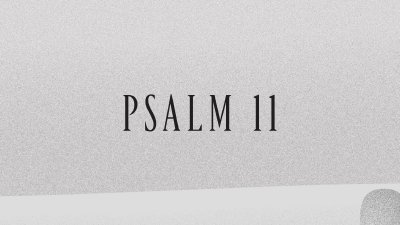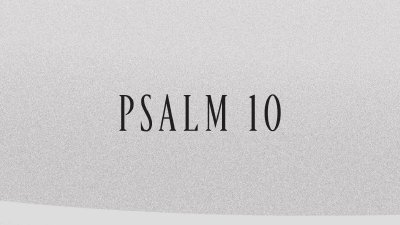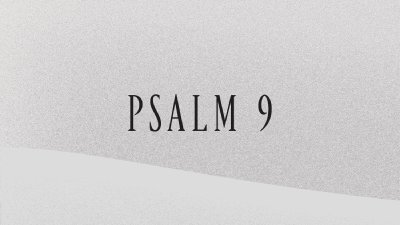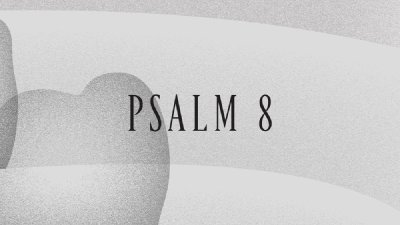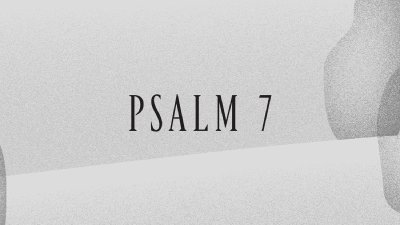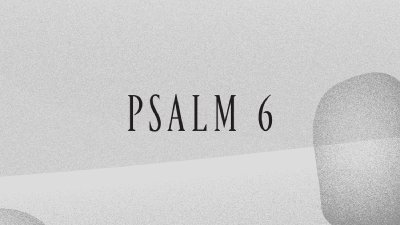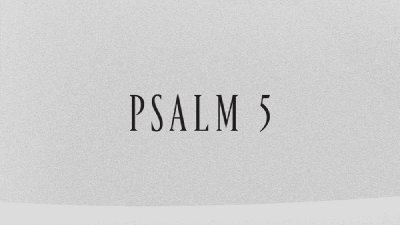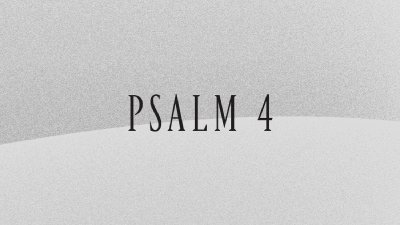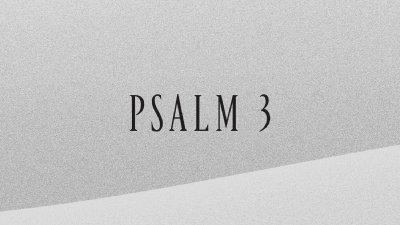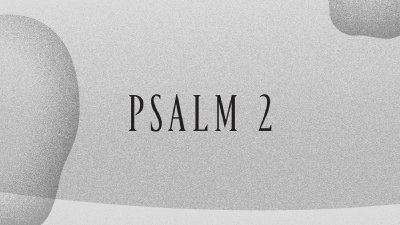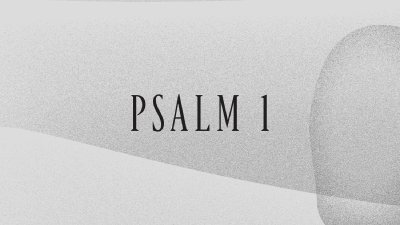

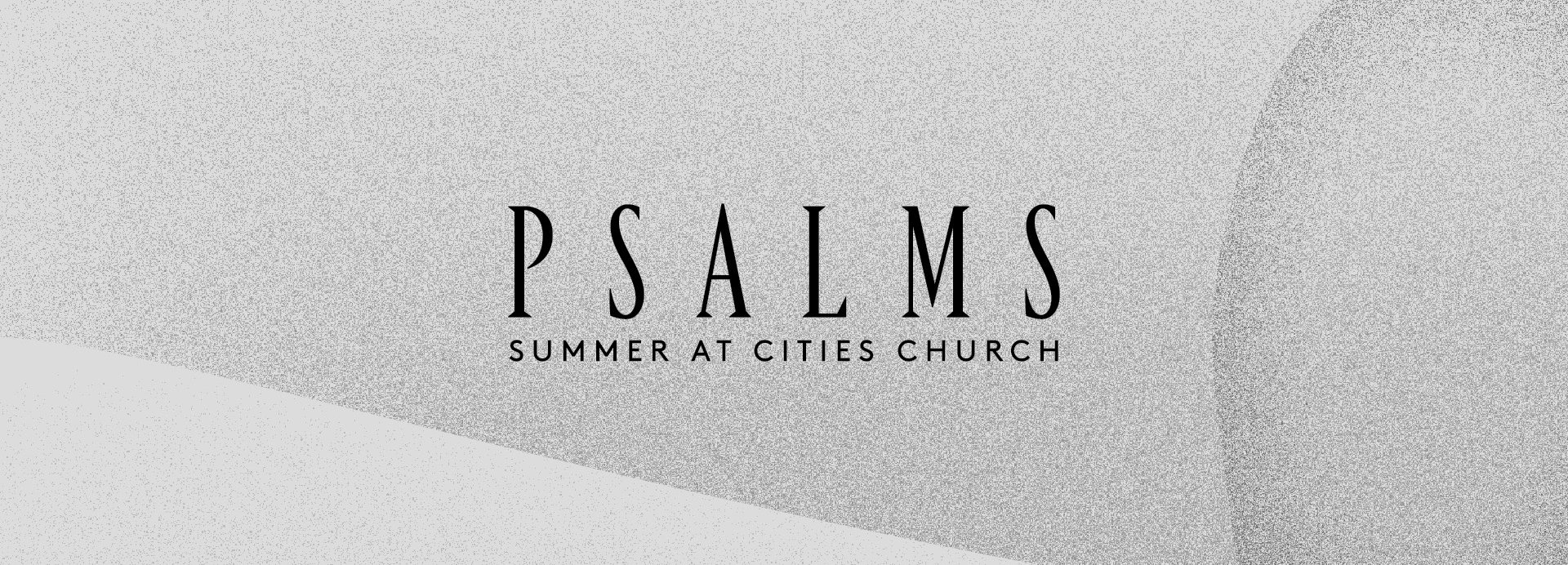
Summer of Psalms
Psalms 1-12 Sermon Series
Deceit and Our Deliverer
September 1, 2019 • Brett Toney
Lies, flattery, and double-speak are rampant all around us. It seems like we face malevolent deceit, manipulative flattery, and two-faced deception at every turn. This was just as true in ancient days as it is today. In Psalm 12 we see the Psalmist lament this reality. But in this Psalm we also see the believer's hope: God is the one who sovereignty protects us from the deceit of our world. God is our deliverer!
Refuge for the Anxious and Afraid
August 25, 2019 • Nick Aufenkamp
It often seems like anxiety is the air we breathe today. Whether you consider yourself an anxious person or not, you cannot deny that fear and anxiety pervade our cultural landscape. And anxiety has a wide range of intensity. At every turn, it seems like darkness and despair are everywhere. However, Psalm 11 models for us a faith-filled response and reminds us that God is our refuge. It may seem to some as if the Gospel has lost its potency, but that is simply not true. Christ is our rock. God is always our refuge.
What God Actually Does
August 18, 2019 • Jonathan Parnell
If God is really present then how can the wicked live like he’s not and live so well? If God is really present then how can the wicked persist in their wickedness with no consequences? Those are the kinds of questions that try to mess with us. And to add insult to injury, or to deepen the disconnect, in Psalm 10 the psalmist shows us how the wicked actually think. There are four quotations in this psalm of what the wicked think and say to themselves — and we don’t find this anywhere else in the Bible. This is profound.
The Righteousness of God
August 11, 2019 • Joe Rigney
God’s righteousness means that he rules his creation with impartiality, he punishes the wicked with wrath, he keeps his promises, and he rescues the oppressed. All of these things are right. But they are not the heart of God’s righteousness. They are what God’s righteousness does, but they are not what righteousness is. In other words, when we’re talking about God’s righteousness and justice, there is something deeper than ruling creation impartially, and judging the wicked, and rescuing the oppressed, and keeping his promises. And we can get at this deeper thing by asking, “How does God know what is right?” Does he have a book that tells him? When he’s deciding on a course of action, does he pull a volume off his shelf and consult it?
The Refuge of God's Righteousness
July 28, 2019 • Jonathan Parnell
Because David was righteous. David did the right thing. So for this Benjaminite to accuse David of wronging Saul, for him to say that David was unethical, or that David had sinned against Saul — it’s just not true. David has walked with integrity. Which is not the same as self-righteousness. Only the righteousness of Jesus makes us acceptable to God; it’s our integrity that makes us usable for God; and every bit of it is grace. Grace is the rock bottom, which means there’s never any room for pride. David is not being prideful in Psalm 7, he’s just saying: God, you know! You hear the words of Cush the Benjaminite, and you know I have walked in the integrity of my heart. So, God, you have to judge this thing. That’s David’s appeal. And it’s all focusing in on verse 9. This is David’s hope.
From Victim to Victor
July 21, 2019 • David Mathis
David’s pain and confusion here is great. His words are no exaggeration. If anything, I suspect, they’re understatement. And in such a whirlwind, God doesn’t tell him, and us, to just grit our teeth, put on smile, and sing a happy song. God says tell me all your sorrows, even when we may be partially at fault. He sees and knows our disorientation, and doesn’t sweep it under the rug, but acknowledges it with the most common type of psalm in his inspired songbook. And he calls us to more than just rehearsing our pain. He wants us to move beyond the disorientation that prompted our lament.
Starting and Stopping Your Prayers
July 14, 2019 • Jonathan Parnell
This is the kind of praying that has a clear starting point. There’s this moment when you acknowledge that right now in prayer I’m doing something distinct from what I was just doing two minutes ago. I’m not merely thinking thoughts. I’m not just continuing on in a stream of consciousness, but right now, in this moment I am praying to God. Which means, right now, I am speaking to God and I believe that God is able to hear me.
A Prayer for the Evening
July 7, 2019 • Joe Rigney
To summarize, the original context that produced the psalm is not clear. The people that David addresses at various times is not clear. It’s not clear when the shifts happen in the psalm. And even some of the exhortations are ambiguous (“Be angry and don’t sin”). However, despite that ambiguity, there is a much that is clear. David pleads with God for relief from his distress. David knows that God has chosen him for himself and will hear his prayer. David exhorts others to offer right sacrifices to God and to trust in the Lord no matter what. And David knows that when God’s face shines on him, he has more joy than any earthly joy, and therefore he can sleep well.
Salvation Belongs to the Lord
June 30, 2019 • Joe Rigney
Now this psalm is a psalm for sinners, for the weak and weary and ignorant like David. But the story behind it has some remarkable anticipations of another story. David faces foes and opposition from his family, his friends, and from the people of Israel, just as a thousand years later, the True Son of David faces opposition from his family (who think he’s out of his mind), from his friends (who fall away in his hour of need) and from crowds of people who cry out “Crucify him!”
Take Refuge in the King
June 23, 2019
If you are here this morning and you are fed up with God and with the conditions of his rule, hear this urgent warning. Be instructed and become wise. The serpent would like for you to believe that true life exists outside of God’s kind designs. But it is a lie. Instead of being a servant to God, Satan would have you become a slave to yourself. That is a miserable exchange—and its end is dissatisfaction, disappointment, and destruction. Instead, you must heed the commands of vv 10-11. “Be wise” “Be warned” “Serve the Lord.” The Messiah’s enthronement and his universal rule is good news, if you will have it—because he has come to deliver you, once and for all, from your sin. There is nothing you need to do except to run to him.
The Way of Blessing
June 16, 2019 • Jonathan Parnell
At the level of structure, Psalm 1 and Psalm 2 actually go together, and they are meant to be an introduction to the entire Book of Psalms. When it comes to Psalm 1 and 2, notice that unlike most psalms, neither of these have a superscript. There’s not a header to these that say anything about the author or the context about the time when they were written. These two psalms are just there, both of them together, and they are tied together by the bookends of Psalm 1:1 and Psalm 2:12. Psalm 1 begins: “Blessed is the man...” and then Psalm 2 ends: “Blessed are all...” So, at the level of structure, these two psalms go together, and they are the lens through which we’re supposed to understand the whole Book of Psalms. And so now what exactly is that lens?


